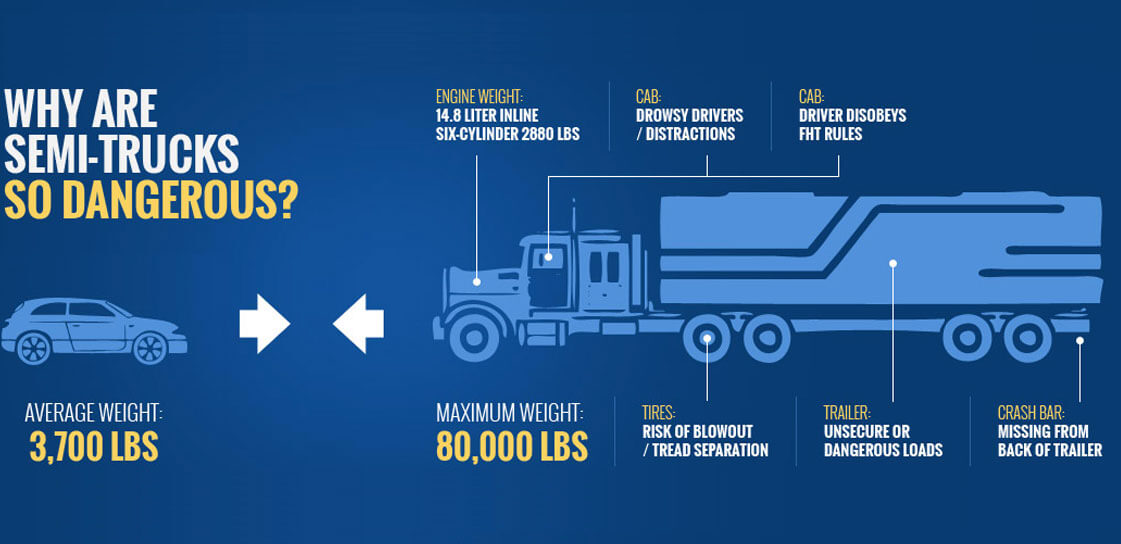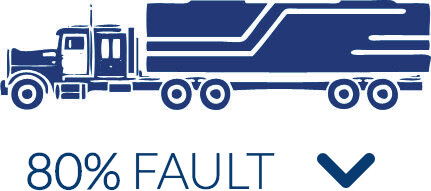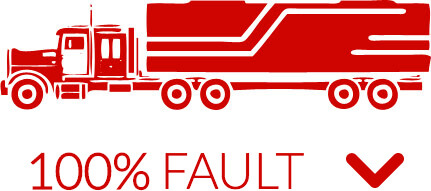Most of us assume that the men and women driving the 18-wheelers we see speeding down Indiana highways are qualified to be there. We believe they must hold special driver’s licenses and have received expert training to handle these big rigs. According to federal law, we would be correct in these assumptions.
However, in practice, we may find that many of these drivers are not qualified to operate these trucks and shouldn't have been hired by their employers in the first place. If one of these drivers caused an accident that leaves victims seriously injured, not only should he be held accountable, but our Indianapolis truck accident attorney believes his employer should be as well.
Federal Law Governing Truck Driver Qualification![truck driver's hands on the wheel]()
The Federal Motor Carriers Safety Administration (FMCSA) outlines requirements for drivers of commercial motor vehicles (CMV) that all drivers and employers of drivers must follow.
According to federal law, a CMV driver must meet the following requirements:
- Is at least 21 years old.
- Can read and speak the English language sufficiently to converse with the general public; understand highway traffic signs and signals in the English language; respond to official inquiries, and make entries on reports and records.
- Can, by reason of experience, training, or both, safely operate the type of commercial motor vehicle he drives.
- Is physically qualified to drive a commercial motor vehicle in accordance with the physical qualifications and examinations required by law.
- Has a currently valid commercial motor vehicle operator's license issued only by one state or jurisdiction.
- Has prepared and furnished the motor carrier that employs him with a certified list of all motor vehicle traffic violations of which he has been convicted in the preceding 12 months.
- Is not disqualified to drive a commercial motor vehicle due to a criminal conviction, DUI, drug possession, or commission of a felony using a motor vehicle.
- Has successfully completed a driver's road test and has been issued a certificate of driver's road test; or has presented an operator's license or a certificate of road test which the motor carrier that employs him has accepted as equivalent to a road test.
While these requirements are in place to make sure every CMV driver is trained, physically fit, and not likely to drive while impaired, enforcement of the requirements ultimately falls on the driver’s employer.
The Role of the Employer in Ensuring Fitness of Driver in Indiana
When hiring drivers, Indiana employers must confirm the applicant meets FMCSA’s requirements through complete background checks and a physical exam. According to the American Trucking Association, the current shortfall of qualified truck drivers is expected to grow to over 50,000 full-time positions over the next few years. This shortage leads many transportation companies to cut corners when it comes to hiring new drivers.
To hire a qualified candidate, employers should go through the following stages:
- Pre-screening. Before moving forward with an applicant, an employer should conduct an employment history search, a search for current and former commercial driver’s licenses held by the applicant, and a confirmation that his or her Social Security number is valid.
- Core screening. Applicants who pass the initial screening should then be subject to employment verifications, driving history report checks, drug or alcohol violations search, criminal records search, and a sex offender registry search.
- Conditional screening. The next level of screening is mandated by FMCA’s rules. Applicants must pass a pre-employment drug test and a physical exam.
- Ongoing screening. Once a driver is hired, he or she is still subject to ongoing screenings for violations of the law and continued good health. Random drug and alcohol testing, motor vehicle record checks, and physical exams must be conducted periodically on all drivers.
Employers who do not follow through on these hiring and employment requirements face stiff penalties from FMCA, including fines of up to $10,000. When an accident occurs, not only will the driver’s condition be investigated, but also the hiring and monitoring practices of his employer.
What This Could Mean to You
If you are injured in a crash involving a commercial truck, you need an attorney in Indiana who understands not only the truck driver’s liability but that of his or her employer. Keller & Keller will thoroughly investigate the cause of the crash and hold all liable parties responsible. We proudly serve Indiana residents at offices conveniently located in Indianapolis and Granger. Request a Free Consultation by filling out our form or call our truck accident team in Indianapolis at 1-800-253-5537 to schedule your free consultation today.















